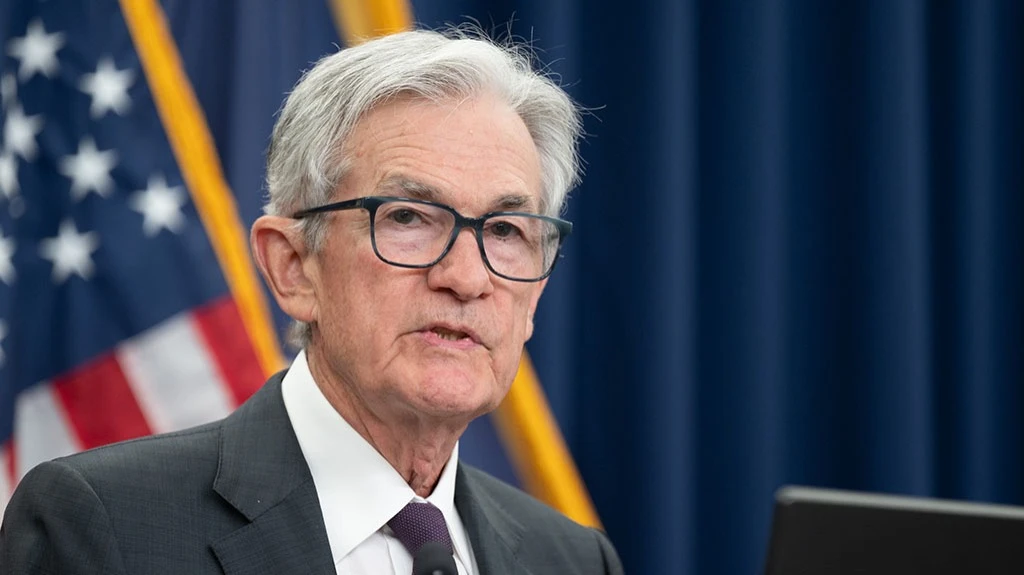U.S. stocks went from rising to falling after Powell's comments
The dollar, on the other hand, rose nearly 1%: this could be its biggest rise in a single day this year

The main U.S. stock index S&P 500 lost all growth for the day and ended trading in the minus after comments of the head of the U.S. Federal Reserve Jerome Powell. The market regarded his words on the interest rate as a sign of a rather "hawkish" position, because of which traders sharply lowered the probability of easing the Fed's policy in September. Some analysts warn that the rate may never be cut this year.
Details
The S&P 500 decreased by 0.12% in trading on Wednesday, July 30 - reaching 6362.9 points. At the same time during the day the index was mainly growing: at the peak it added 0.4%, but after the comments of Fed Chairman Jerome Powell it weakened sharply. The fall reached 0.5%, but slowed down significantly by the close of the stock exchanges.
The blue-chip index Dow Jones Industrial Average dropped by 0.38% on the day. The index of small-capitalization companies Russell 2000 lost 0.47%. Of the four major indices, only the "technological" Nasdaq Composite ended the day up 0.15%.
U.S. government bond yields rose, while the dollar exchange rate, on the other hand, jumped, noted Bloomberg. The yield on two-year treasuries added 7 basis points at the moment to reach 3.93%, while The Bloomberg Dollar Spot index of U.S. currencies was up 0.8%. That marked one of the sharpest appreciation in the currency on the day of the Fed's decision and possibly the biggest this year, the agency suggested. For the market as a whole, it was the worst Fed decision day since December, it added it.
At the end of the meeting on July 29-30, the US Federal Reserve saved the interest rate at the same level - in the range of 4.25-4.5%. The decision was not unanimous: for the first time since 1993, two members of the Federal Open Market Committee (FOMC) did not support it and proposed instead to reduce the rate by a quarter of a percentage point.
What Powell did to upset the market
The market initially reacted to the Fed's decision with restraint: stocks rose and the dollar weakened slightly, as analysts expected. However, in the days of Fed decisions, Jerome Powell's comments at a press conference usually have a greater impact on the market than the publication of a press release, Bloomberg noted. That's what happened this time.
The Fed chief did not make it clear at the press conference that the regulator's next move at its September meeting will be a rate cut, reports Yahoo Finance. On the contrary, Powell emphasized that the FOMC does not make decisions in advance and does not follow any pre-set course. He said most committee members believe that "moderately restrictive" monetary policy remains appropriate for now.
Powell also drew attention to the effect of trade duties, which, in his opinion, is only just beginning to be reflected in prices and inflation. Moreover, the Fed, in fact, is still "turning a blind eye" to the duties, as it is not raising rates, he added. So far, companies and retailers have borne the bulk of the costs due to duties, but they are starting to trickle down into consumer prices: the regulator expects this process to continue, Powell said.
Traders regarded Powell's comments as rather "hawkish" and reduced their estimates of the probability of rate cuts in September: if on July 29 they were 68%, after the words of the head of the Fed were at the level of 45%, wrote Bloomberg. Powell's comments were a "cold shower" for traders who had been waiting for monetary easing in September, noted CNBC.
What the analysts are saying
Despite the two FOMC members' deviation from the common position, it shouldn't be seen as a significant signal that the committee is moving closer to a rate cut decision in September, Capital Economics analyst Stephen Brown told Bloomberg in a statement. He still sees the most likely outcome as the Fed "leaving policy unchanged for the rest of this year."
Aditya Bhave of Bank of America shares this view: he reiterated that he does not expect rate cuts in 2025 because of trends in inflation and the effect that duties will have on it. "Even if [one of the FOMC members who advocated for a rate cut, Christopher] Waller, thinks that duties are not that important, there's still the inflation issue and I think the Fed doesn't recognize that enough yet," Bhawe said on Bloomberg TV," Bhave said on Bloomberg TV.
For Florian Ielpo of Lombard Odier Investment Managers, the key takeaway from the Fed meeting was "the signal that certain [FOMC] members were willing to be nominated by Donald Trump to be the next Fed chair." In terms of monetary policy, there was no clarity, Ielpo added.
On Thursday, July 31, the Core Consumer Spending Index (Core PCE) is expected to be released, which could be strong, and on Friday, the July jobs statistics, which is also likely to be strong, suggested Bloomberg Economics analyst Anna Wong. The data could further divide the FOMC: BE said most committee members won't be convinced that inflation is moving in the right direction until the end of the year, pointing to a rate cut only in December. On the other hand, Wednesday's Fed press release seemed rather dovish to Wong, raising the chances of policy easing in September.
"Powell is not bowing to political pressure to cut rates, so markets have had to revise their expectations [...] The markets' reaction has been fairly subdued, mainly because it's generally clear which direction rates are headed, despite Powell's current ability to stick with the 'wait and see' tactic," noted Harris Financial Group managing partner Jamie Cox in a CNBC story.
This article was AI-translated and verified by a human editor
